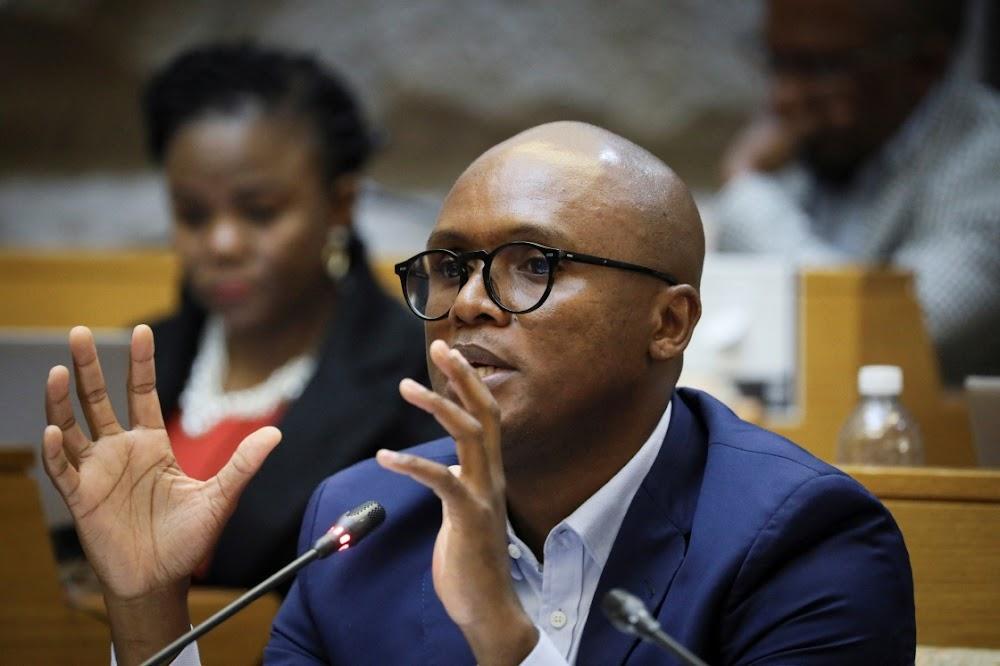Africa-Press – South-Africa. Stakeholders in the information and communications technologies (ICT) sector need to set aside “territorial attachments” and pursue interventions that will empower the sector to grow South Africa’s economy, minister of communications Solly Malatsi says.
He was speaking in Cape Town on Monday during an event at Business 20, the business segment of South Africa’s Group of 20 activities during the country’s presidency of the G20.
The B20 Digital Transformation Task Force (DTTF) developed four key recommendations for the G20. These include advanced digital inclusivity, universal connectivity, digital skills, and ethical governance of emerging technologies.
Malatsi said stakeholders should not allow their ideological differences to get in the way of workable solutions that stand the best chance of achieving the outlined objectives.
“We all have a part to play from a policy perspective in looking at the removal of those hurdles that prevent so many households and so many people who are not economically active from being able to access something as basic as a smart device, and making sure that we remove those hurdles to foster their inclusive digital transformation.
“It also requires, even from a regulatory perspective, that we view regulation as an empowerment tool rather than an enforcement instrument that seeks to enhance compliance rather than foster opportunity.”
The minister’s remarks come amid a turbulent tenure at the department of communications and digital technologies. As a DA member in a cabinet position through the government of national unity (GNU) formed after last year’s election, he has found himself in the crosshairs of ANC heavyweights, including the chair of parliament’s portfolio committee on communications, Sangoni-Diko.
In May, the minister gazetted a draft policy allowing telecommunications companies to use equity equivalents, instead of being black-owned or broad-based black economic empowerment (B-BBEE) compliant, to enter the local market, ostensibly to accommodate Elon Musk’s Starlink.
Malatsi said his focus was on how best to make interventions that could take South Africa forward as well as enhance economic activity in his portfolio and throughout the ICT sector.
“But all of that is only possible through the power of partnerships. And those partnerships… that there is a recognition that if we truly care about making an impact in society for our businesses to grow and for us to uplift people out of poverty, we really need to just get over our territorial attachment to where the answers come from and look at the substance of those answers and the impact of those solutions.”
During a recent parliamentary briefing, Diko said the committee understood that to get a licence in the telecom sector, 30% equity must be allocated to previously disadvantaged groups, which is not in line with the B-BBEE policy.
“What we are saying to the minister is that he, first, must not be opportunistic, and he must ensure that he follows the correct channels. Trade and industry came together with the minerals portfolio committee, and I’m sure that there were legislative amendments that would have taken place there to introduce the BEE codes to the sector, especially around licences.
“Now, that hasn’t happened in our sector. The minister just wants to take a shortcut by saying he is just going to align the laws. There’s no such thing as aligning laws. You either change the laws or you seek legal interpretation.
“We are very keen to see how the minister is going to proceed on that matter. If there must be changes to the law, we must have that conversation, and we agree with the telcos wanting regulatory parity, but the question is what is that going to look like and what sort of obligations and licensing regime do you create for the likes of Starlink and so forth?”
Phuthi Mahanyele-Dabengwa, the digital transformation task force chair, said the task force needed to ensure that young people are able to participate in the digital economy through increased access to connectivity.
“When I look at just some of the B20 digital conservation hospital priorities, we’ve looked at really measurable targets, and certainly we’re aware, and… we have about 2.6-billion people that remain offline, and we need to ensure that what we’ve done in terms of our policy document, we have said that we want to ensure that we have a billion people being online.”
The B20 DTTF meeting also includes an inter-ministerial event that will provide a platform to champion four key recommendations, strengthen cross-sector partnerships, and mobilise action toward an equitable digital economy.
For More News And Analysis About South-Africa Follow Africa-Press






